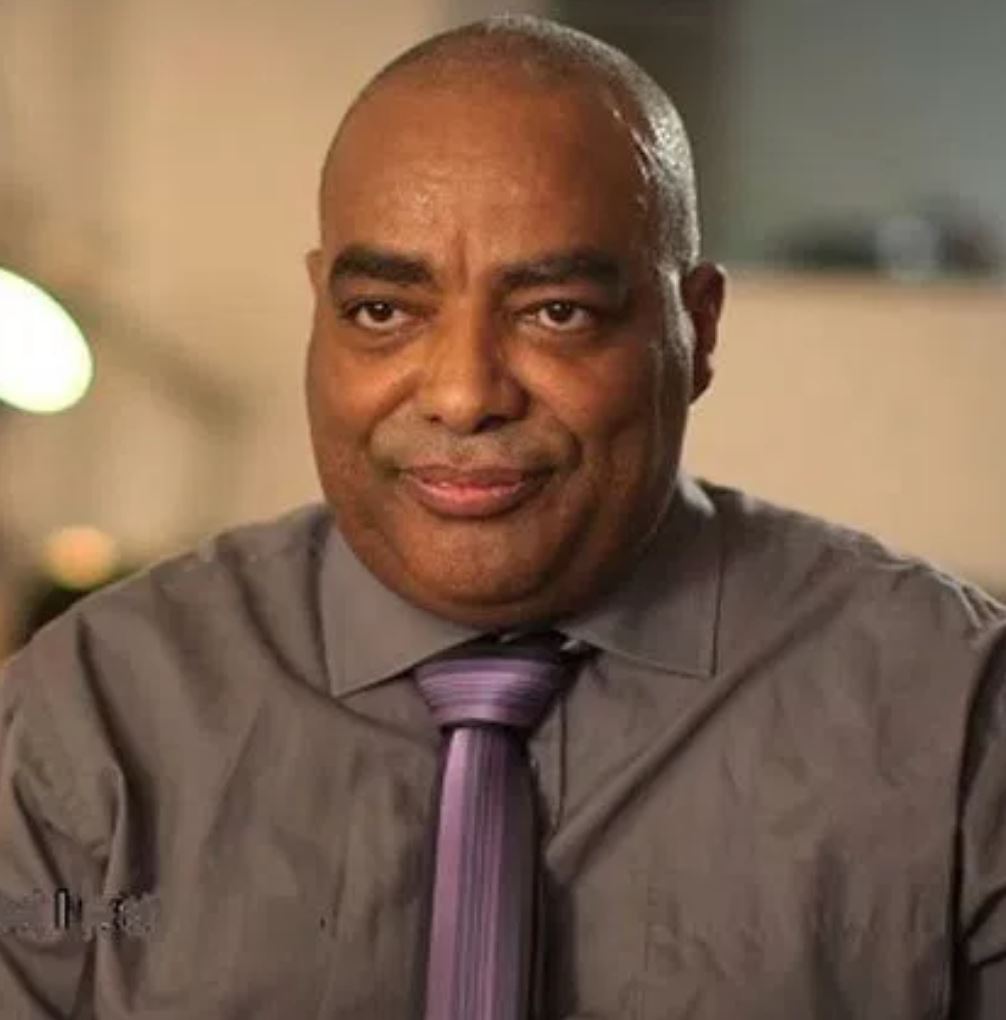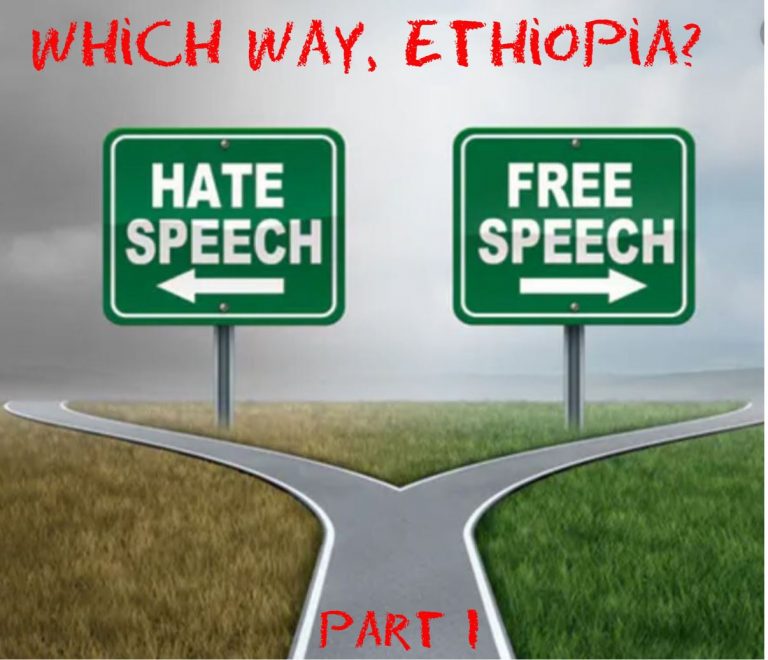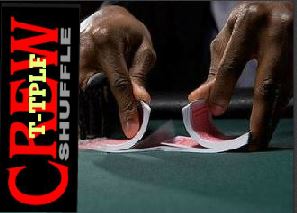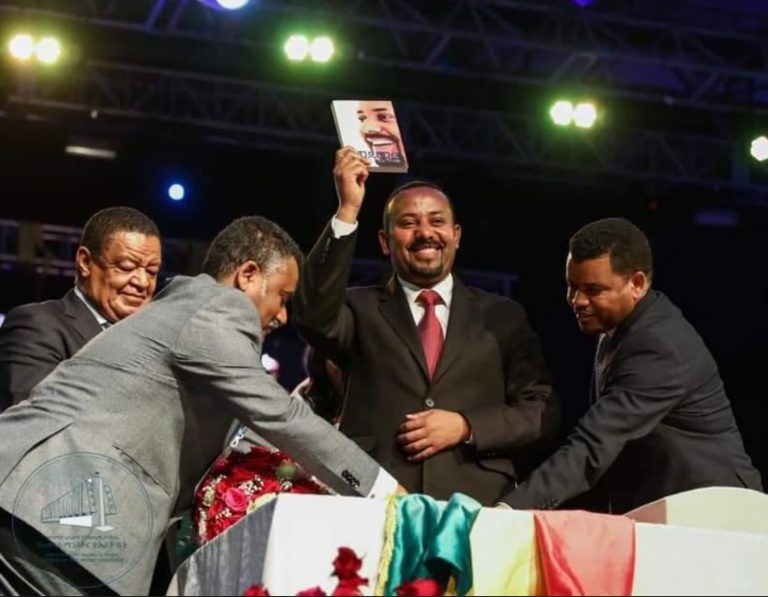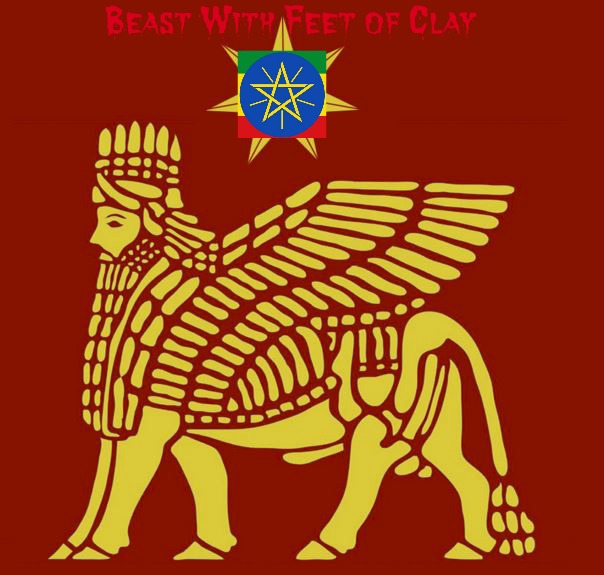Ethiopia-Win-Et and British Justice: The Magna Carta Lives on For Tadesse Biru Kersmo
Vindication of the rule of law
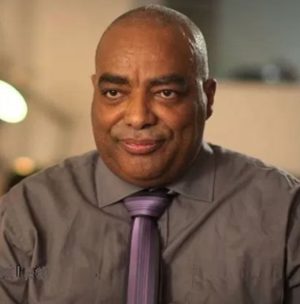
In his closing argument defending a cabinet minister of a fictional African country called “Naranga”, John Mortimer’s equally fictional character Rumpole of the Bailey argued to the learned African judge:
… When London is nothing more than a memory, and the Old Bailey has sunk back in the primeval mud, my country will be remembered for three things: the British breakfast, the Oxford Book of English verse and the presumption of innocence. That is the golden thread which runs through the whole history of our criminal law… No man shall be convicted if there is reasonable doubt as to his guilt.
The fictional defendant and former Rumpole pupil, David Mazenze, was acquitted on a charge of murder. In the process of defending Mazenze, Rumpole found himself mixed up in the local tribal politics of Naranga.
In a case of life imitating art, in July 2017, Tadesse B. Kersmo, an exiled real African professor teaching at a university in London and a human rights advocate from the real country of Ethiopia was charged by the British Crown Prosecutors with eight bogus counts of terrorism.
On December 20, 2017, the “golden thread which runs through the whole history of British criminal law” shimmered when a jury at the Snaresbrook Crown Court acquitted Tadesse Kersmo on all charges. His “crimes” were downloading and keeping “terrorism-related” reading materials freely available online.
Tadesse was presumed innocent when he entered the Snaresbrook courtroom and walked out an innocent man, triumphantly.
In my July 2017 commentary, I demonstrated beyond a shadow of doubt that the charges against Tadesse were trumped up and could not stand rigorous scrutiny in the courtroom. In the last sentence of that commentary I argued, “there are a thousand doubts based on reason and facts as to the guilt of Tadesse Biru Kersmo on charges of terrorism.”
I knew that no reasonable British jury would find a man guilty of terrorism simply for downloading on his computer freely available or easily purchasable documents on the internet.
I am happy Tadesse’s jury had reasonable doubt about Tadesse’s guilt on all counts and set him free. Under British and American law, one doubt, not a thousand, based on reason is sufficient to acquit a man of any criminal charges.
I am deeply disappointed in the Crown prosecutors who brought the trumped up charges against Tadesse.
I am not surprised though. I am informed and believe Tadesse’s proxy prosecution in the Crown Court was a thinly-veiled coordinated effort between the British Government and the ruling Thugtatorship of the Tigrean People’s Liberation Front (T-TPLF) in Ethiopia to suppress the Diaspora Ethiopian opposition, particularly the Ginbot 7 Movement and strike fear and trepidation in the hearts of its members in the U.K. Of course, neither the finger- nor footprints of the T-TPLF can be detected on the trumped up charges, but the truth will come out in time.
But we have the T-TPLF”s fingerprints from its efforts in the U.S. The T-TPLF has undertaken a variety of efforts to put Ginbot 7 on the State Department’s terrorism list. Failing in that effort, the T-TPLF managed to get U.S. Undersecretary of State Wendy Sherman to declare in 2015 the U.S. has “concerns about all of those terrorist groups that Ethiopia considers Ginbot 7 a terrorist group as well. The United States believes no group, including Ginbot 7 should attempt to overthrow or speak of overthrowing a democratically elected government.” A very high level U.S. official declared Ginbot 7 a “terrorist group” but did nothing to rid this group from the United States of America.
Suffice it to say the Washington Post buzz sawed Sherman in an editorial for her fawning support of the T-TPLF.
No matter, Lady Luck had smiled on Tadesse.
I can only imagine what could have happened to Tadesse had he been caught at Heathrow Airport with a copy of Thomas Jefferson’s “Declaration of Independence”, Tom Paine’s “Common Sense” or the pamphlets of that infamous “terrorist” Patrick Henry who cried out, “Give me liberty or give me death”.
After his acquittal, Tadesse was defiant as ever. “I am happy that authorities brought the charges against me because it would give a lesson that the truth always prevails where there is justice. It sends a message that democracy is not just holding elections, it is also about justice.” He also expressed his steadfast belief in the supremacy of the rule of law in the U.K. and lamented its absence in his birth country: “I have always had confidence in the British judicial system and see an independent judiciary as one of the essential pillars of democracy. Something which is sadly lacking in my home country [Ethiopia]. I want to thank my legal team for their incredible hard work and commitment to my case.”
Aaah! That’s where the rubber meets the road. Justice. The rule of law. An independent judiciary. Judgement of one’s peers.
Before the barons pinned Clause 39 of the Magna Carta Libertatum (Great Charter of the Liberties) on King John’s royal robe in 1215, he could imprison, dispossess and exile his subjects at his whim and fancy. Clause 39 put the brakes on Big Bad John and his arbitrary administration of justice by royal writ. “No free man is to be arrested, or imprisoned, or disseised, or outlawed, or exiled, or in any other way ruined, nor will we go against him or send against him, except by the lawful judgment of his peers or by the law of the land.” The 1215 Magna Carta established the principle of the supremacy of the rule of law. Even the king is not above the law. The king does not have the arbitrary power to deprive any of his subject’s life, liberty or property. Only by the rule of law of the land can he rule his realm.
Article 29 of the 1297 Magna Carta significantly expanded on Clause 39: “No Freeman shall be taken or imprisoned, or be disseised of his Freehold, or Liberties, or free Customs, or be outlawed, or exiled, or any other wise destroyed; nor will We not pass upon him, nor condemn him, but by lawful judgment of his Peers, or by the Law of the Land. We will sell to no man, we will not deny or defer to any man either Justice or Right.”
I agree with the views of scholars who believe Clause 39 aimed to ensure “every judgment must be delivered by the accused man’s “equals”, that is a trial by a jury of his peers.” But there is a diversity of scholarly opinion on that. There is no dispute that Clause 39 is the spiritual foundation for all constitutions and governments that truly practice the rule of law. It is certainly the bedrock foundation of the American and British justice systems.
Tadesse Kersmo’s exoneration by an English jury testifies to the power of the rule of law and judgement by one’s peers dating back 802 years. He is a direct beneficiary of the Magna Carta as is every criminal defendant who is tried before a jury of his/her peers.
Since childhood, I have been fascinated by the Magna Carta, among other timeless documents enshrining the rule of law.
I take immense pride in celebrating the 800th anniversary of the Magna Carta on my campus with my students (arguably the only celebration of its kind on any American campus) in 2015. It was a special honor to have my commentary, “A Magna Carta for Ethiopia” posted on the official website of the 800th Magna Carta Committee.
For the past 12 years, I have been preaching the gospel of the rule of law in numerous commentaries.
In my July 2007 commentary, “Importance of the Rule of Law: Commentary on Seeye Abraha’s Post-Release Interview”, I defended Seeye Abraha, at one time the second-in-command of the T-TPLF. Seeye was “convicted” of “corruption” charges in the very courts he himself helped set up.
When the consensus in the opposition was that Seeye got what he deserved, and many pointed out examples of his abuses while in power, I insisted that even if he were presumed guilty in the court of public opinion he is entitled to full due process in the courtroom. He was denied due process and railroaded to prison to take him out of the T-TPLF power play games.
My defense of Seeye was not about his guilt or innocence but the fact that he was convicted in kangaroo court. It was a matter of defending the principle of the rule of law, not Seeye. It would have been so much easier for me to condemn Seeye and make political points in the opposition, but that would have been wrong. If I claim to believe in the rule of law, then it would be hypocritical for me to say it does not apply to my adversaries, even if my adversaries denied due process of law to millions of other citizens. I even urged my readers to embrace and encourage Seeye to promote the rule of law and democratic rule in Ethiopia by joining hands with the opposition. I believe any (wo)man can change his/her evil ways because, as Martin Luther King said, “There is some good in the worst of us and some evil in the best of us.”
In September 2010, I defended my late nemesis Meles Zenawi’s right to speak at an event at Columbia University in New York. That was particularly painful for me personally; and not because I had to wither criticism of “selling out” to the TPLF for defending Meles’s right to speak. Rather, it was most painful because I had to take a stand in opposition to two individuals for whom I have the greatest and highest respect and admiration. I can only speak of Eskinder Nega and his wife Serkalem Fasil in Churchillian terms: “Never in the field of journalism in Ethiopia was so much owed by so many to so few.”
In their letter to Columbia president Lee Bolinger asking him to disinvite Meles, they recounted the unspeakable horrors they suffered at the hands of Meles Zenawi.
I am forever hopeful Eskinder and Serkalem will forgive me for not standing with them on Meles’s right to speak at Columbia. But I must stay true to my principles even when the price to be paid is very high.
If censorship is bad for the good citizens of Ethiopia, it is also bad for the dictators of Ethiopia. I embrace Prof. Noam Chomsky’s admonition: “If we don’t believe in freedom of expression for people we despise, we don’t believe in it at all.” It would have been hypocritical of me to argue for free speech and press freedoms in Ethiopia and justify censorship or muzzling of Zenawi stateside. It is a painful irony that one must insist the rights of those who flagrantly violate the rights of millions of others must be protected. But that is the universal rule of law articulated in Article 19 of the Universal Declaration of Human Rights.
In my April 2012 commentary, “The Rule of Law in Ethiopia’s Democratic Transition”, I challenged Meles Zenawi’s patently false statement in an interview with Aftenposten (Norway’s largest paper): “We have reached a very advanced stage of rule of law and respect for human rights. Fundamentally, this is a country where democratic rights of people are respected.” In that commentary, I tried to educate Meles that he is confusing rule of law with rule by diktat or rule by dictator.
In my May 2013 commentary, “Ethiopia: The Corruption Game”, I defended the due process rights of individuals accused of corruption by the T-TPLF regime. I wrote, “denial of due process (fair trial) is the highest form of corruption imaginable because its denial results in the arbitrary deprivation of a person’s life, liberty and property. I am unapologetic in my insistence that even suspects accused of corruption are entitled to full due process of law under the T-TPLF constitution and international human rights conventions.” (Of course, all T-TPLF corruption prosecutions are a case of the kettle calling the pot black, as it were.)
In my October 2015 commentary, “Kim Davis: A Lesson in the Rule of Law”, I argued that personal beliefs are irrelevant to enforcement of the rule of law. Kentucky County Clerk Kim Davis refused to implement a decision of the United States Supreme Court legalizing same sex marriages because her religious beliefs exempt her from following the pronouncements of the highest court in the land and that the U.S. Supreme Court does not have jurisdiction over God’s law. But the supreme law of the land, the U.S. Constitution, had resolved that issue in the First Amendment. Thomas Jefferson wrote that the constitutional rule of law mandated the “building a wall of separation between Church & State.”
In my May 2016 commentary, “The ‘Law’ as State Terrorism in Apartheid Ethiopia”, I demonstrated how the rule of law could be transformed into the rule of tyranny and persecution of dissent. I demonstrated to Meles and his T-TPLF that the rule of law is not a monkey-see, monkey-do job, or a matter of copy and paste. I argued that when the State uses the “law” to silence and violently stamp out dissent, jail and keep dissenters and opposition leaders and members in solitary confinement and suppress the press and arbitrarily arrest journalists, trash human rights with impunity, trample upon the rule of law and scoff at constitutional accountability, there is no longer rule of law, only rule of a terrorist state.
In my February 2017 commentary, “The Day America Taught the World the Meaning of the Rule of Law”, I showed how an independent judiciary could secure compliance with the rule of law by requiring President Trump’s executive orders “comport with the country’s laws, more importantly, our Constitution.” President Trump also received a practical lesson on the meaning of the phrase, “the supreme law of the land.”
For the past 12 years, I have been preaching the gospel of the rule of law to the T-TPLF. I have failed completely in my efforts.
Preaching the rule of law to thugs is like preaching Scripture to Heathen or pouring water over a slab of granite.
Free Andargachew Tsgie!
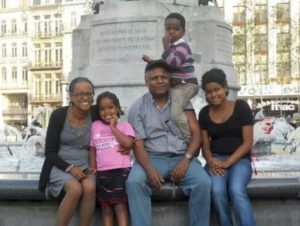
The effort to free Andargachew Tsgie must now be intensified.
I have previously written about another British citizen, Andargachew Tsgie, abducted, literally hijacked, by the T-TPLF in Yemen in 2014.
In my July 2014, commentary, “Ethiopia: The Crime of Extraordinary Rendition”, I condemned Andargachew’s outrageous and illegal abduction by the T-TPLF. Andargachew is the General Secretary of the Ethiopian opposition group formally known as Ginbot 7 Movement for Justice, Freedom and Democracy. In that commentary, I noted the struggle for the rule of (international) law is the unending struggle of civilization against savagery, brutality, depravity and inhumanity. Savagery against the rule of law is not limited to wild-eyed murderous terrorist. It is equally the stock in trade of those who claim to follow the rule of law by practicing the rule of thuggery.
In my January 2015 commentary, “Andargachew Tsgie Before the T-TPLF Inquisition?”, I “indicted” the British Government for its complete failure in its obligation to protect Andargachew under the 1963 Vienna Convention on Consular Relations. I also wondered out loud if the British Government has a double-standard in protecting the rights of its “first” and “second” class citizens.
I do not make these charges to be offensive or inflammatory. I make the charges based on facts.
Let me cut to the chase. I have always wondered if the U.K. Government would be so indifferent and disengaged if Andargachew was white instead of black. I don’t know if the current UK Government maintains a double-standard policy, but I know for sure that the U.K. government will go out of its way to get some of its citizens out of Third World dungeons and leave others to rot in them.
On December 7, 2017, it was announced, “Boris Johnson is expected to fly to Iran this weekend for bilateral talks that will include seeking the release of Nazanin Zaghari-Ratcliffe, the British charity worker jailed there.”
When Boris visited Ethiopia in March 2017, Andragachew’s family and human rights organizations urged him to secure the release of Andargachew. Three top British legal officials have sent a letter to British Foreign Secretary Boris Johnson, urging him to push for Tsige’s release from detention because he is being held “in violation of international law.”
Johnson went to Ethiopia and “discussed regional security and expanding cooperation in areas such as migration, development, investment and trade.” At the end of the meeting Johnson said he “was excited to see ever increasing cooperation between our two countries.”
There was not any mention of Andargachew Tsgie as part of the “discussions”, let alone secure his release.
Nazanin Zaghari-Ratcliffe went to Iran voluntarily. Andargachew was abducted in violation of international law. Yet for Nazanin Zaghari-Ratcliffe, Johnson will make a personal trip to get a release. For Andargachew, who was abducted by the T-TPLF criminals at a Yemeni airport, Boris went to Ethiopia to chit-chat with Andargachew’s captors and completely forgot about him.
Bloody shame!
On October 31, 2017, it was reported that British International Development Secretary, Andrew Mitchell, said he is “confident a solution can be found to get Andy home to his partner and three children in London by Christmas.”
Christmas is upon us and Andargachew Tsgie remains chained in T-TPLF prison as his government turns a blind eye and deaf ears to the pleas of his family and friends.
There will be no Merry Christmas for Andargachew’s children for the fourth year in a row.
Shame on the British Government!
I can only express my disgust with the U.K. Government’s depraved indifference to Andargachew’s plight in the words of John of Gaunt in Shakespeare’s Richard II lamenting the fate of “this sceptred isle”, “this other Eden, demi-paradise”:
That England that was wont to conquer others
Hath made a shameful conquest of itself.
No, no! That England has itself been conquered by a gang of thugs.
Andargachew Tsgie is entitled to due process of law, just like Tadesse Kersmo.
Boris Johnson must make a special trip to Addis Ababa to secure Andargachew’s release, just like he made a special trip to secure the release of Nazanin Zaghari-Ratcliffe in Iran.
If the U.K. Government cannot get Andargachew home for Christmas, they should get him home by New Year’s day!
The U.K. government should exert as much effort and resources to get Andargachew Tsgie released from T-TPLF prison as they spent to imprison Tadesse Kersmo in theirs.
Andy’s supporters in the U.K. and elsewhere should steel their resolve and hold the U.K. Government accountable.
They should begin, if they have not already, by demanding all relevant information and documents concerning Andargachew Tsgie and communications between the U.K Government and the T-TPLF concerning Andargachew Tsgie.
It is the right of British citizens to use their country’s Freedom of Information Act and demand accountability.
Yes, I am still campaigning for a Magna Carta Libertatum for Ethiopia!
La luta a continua!
FREE ANDARGACHEW TSGIE!
====================
A simple question for my readers: Is it a coincidence that Andargachew Tsgie was abducted by the T-TPLF as a “terrorist” in July 2014 and Tadesse Kersmo charged by the U.K. Government with terrorism in July 2017?

